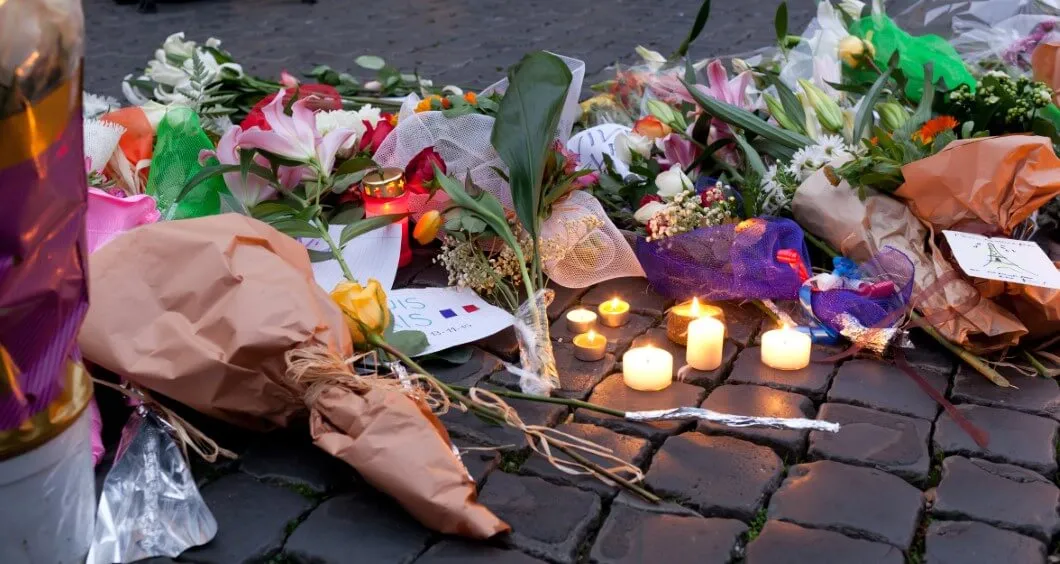
Between November 2015 and July 2016, three jihadist attacks in Paris and Nice killed 224 people, wounding at least 850 others. The attacks put France on alert, but also the hundreds of thousands of people who planned to travel to the world's top tourist destination. As a result, in the first half of that year, visits to the country plummeted by 7%, thus hurting the national economy.
In many other countries, violence and political instability are a constant. This is the case in Afghanistan, Burkina Faso, Somalia, Mali, Syria, Pakistan, Iraq, Nigeria, Myanmar, and Niger, the ten most affected countries by the terrorist scourge.
Last year, as many as 6,701 people were killed worldwide in terrorist attacks, down 9% from 2021, according to data from the Global Terrorism Index. The self-styled Islamic State and its affiliated branches are the terrorist groups that have left the most victims during the last eight years, thus hitting the areas in which it operates.
"The Sahel region in sub-Saharan Africa is the largest epicenter of terrorism today, accumulating more deaths in 2022 than South Asia, the Middle East and North Africa," the report said.
Although it may seem the least of its problems, tourism is essential to the economy of many countries. Before the pandemic, the sector directly contributed 4.4% of gross domestic product (GDP) and 6.9% of employment in nations that are part of the Organization for Economic Cooperation and Development (OECD). "Tourism offers opportunities for economic diversification and market creation," says the World Bank. The setback tourism suffered in 2020 with the coronavirus outbreak is a proof of its impact on wealth.
What happens in countries besieged by terrorism? The least known of them, such as Burkina Faso, Niger, or Mali, sneak into the list of countries with fewer visitors worldwide, mainly taken up by small island states. In other once-more popular destinations, the entrenchment of armed conflict has also devastated the tourism industry. In 2010, Syria recorded its highest GDP of more than $252 billion and attracted about 10 million tourists, many of them Westerners. More than a decade and a bloody war later, its wealth is $65 billion (according to 2019 data), and it received 750 tourists in the first half of 2022.

That reaction seems logical. Tourists tend to choose the travel option that poses the least risk to their safety. However, some studies suggest that the perception that a destination is dangerous can lead to replacing it with a more comfortable one. This impacts the economy of the affected region. This is most dramatically observed in countries most dependent on tourism, such as Turkey. For example, in 2016, tourist bookings to visit Istanbul fell 69% in the week after the capital's airport bombing that left 44 people dead, according to travel intelligence firm ForwardKeys.
For the most historically unstable countries, it is a fish that bites its tail: violence scares away tourists, and the lack of visitors cuts off a potential avenue of economic income that undermines development and feeds that lack of stability. This correlation can be seen in the countries most affected by terrorism. In Burkina Faso and Niger, the drop in tourism coincided with the Islamist insurgency on the border and internal displacement forced by the war; in Myanmar, with the Rohingya genocide first and later with the coup d'état of the military junta.
Most of the countries hardest hit by terrorism are destinations that, in recent years, have aroused very little interest among tourists. However, this reality cannot be attributed solely to violence, as it can also be due to other, but not minor factors. For example, according to the Ecological Threat Report, the six nations with the most attacks are among the 25 with the most significant ecological threats. In addition, 58 percent of the world's 830 million food-insecure people live in the 20 countries with the most terrorist activity.











The Uganda Police Force showcased its ability to combat terrorism and violent activities in a joint demo exercise held by the Directorate of Counter Terrorism and the Field Force Unit at the Kigo Marine Base-Entebbe on March 27th, 2023.
The exercise was held to demonstrate the police force’s professionalism and use of advanced capabilities and tools.
During the exercise, the Deputy Inspector General of Police, Maj. Gen Geoffrey Tumusiime Katsigazi, praised the police officers for their professionalism and dedication to serving the public.
He also warned criminals that the police force is now well-equipped to handle any threats of criminality in the country.
“I want to thank the government of Uganda for enabling us acquire the capabilities and tools that are helping us keep law and order in Uganda,” said the DIG
uganda is safe to visit for tourism